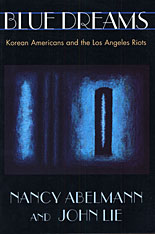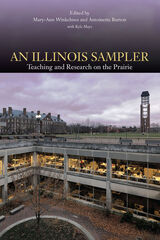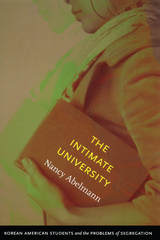
No one will soon forget the image, blazed across the airwaves, of armed Korean Americans taking to the rooftops as their businesses went up in flames during the Los Angeles riots. Why Korean Americans? What stoked the wrath the riots unleashed against them? Blue Dreams is the first book to make sense of these questions, to show how Korean Americans, variously depicted as immigrant seekers after the American dream or as racist merchants exploiting African Americans, emerged at the crossroads of conflicting social reflections in the aftermath of the 1992 riots.
The situation of Los Angeles’s Korean Americans touches on some of the most vexing issues facing American society today: ethnic conflict, urban poverty, immigration, multiculturalism, and ideological polarization. Combining interviews and deft socio-historical analysis, Blue Dreams gives these problems a human face and at the same time clarifies the historical, political, and economic factors that render them so complex. In the lives and voices of Korean Americans, the authors locate a profound challenge to cherished assumptions about the United States and its minorities.
Why did Koreans come to the United States? Why did they set up shop in poor inner-city neighborhoods? Are they in conflict with African Americans? These are among the many difficult questions the authors answer as they probe the transnational roots and diversity of Los Angeles’s Korean Americans. Their work finally shows us in sharp relief and moving detail a community that, despite the blinding media focus brought to bear during the riots, has nonetheless remained largely silent and effectively invisible. An important corrective to the formulaic accounts that have pitted Korean Americans against African Americans, Blue Dreams places the Korean American story squarely at the center of national debates over race, class, culture, and community.

Aimed at alumni and prospective students interested in the university's ongoing mission, as well as current faculty and students wishing to stay up to date on the work being done around them, An Illinois Sampler showcases the best, the most ambitious, and the most effective teaching practices developed and nurtured at one of the world's premier research universities.
Contributors are Nancy Abelmann, Flavia C. D. Andrade, Jayadev Athreya, Betty Jo Barrett, Thomas J. Bassett, Hugh Bishop, Antoinette Burton, Lauren A. Denofrio-Corrales, Lizanne DeStefano, Karen Flynn, Bruce W. Fouke, Rebecca Ginsburg, Julie Jordan Gunn, Geoffrey Herman, Laurie Johnson, Kyle T. Mays, Rebecca Nettl-Fiol, Audrey Petty, Anke Pinkert, Raymond Price, Luisa-Maria Rosu, D. Fairchild Ruggles, Carol Spindel, Mark D. Steinberg, William Sullivan, Richard I. Tapping, Bradley Tober, Agniezska Tuszynska, Bryan Wilcox, Kate Williams, Mary-Ann Winkelmes, and Yi Lu.

Drawing on ten years of ethnographic research with Korean American students at the University of Illinois and closely following multiple generations of a single extended Korean American family in the Chicago metropolitan area, Abelmann investigates the complexity of racial politics at the American university today. Racially hyper-visible and invisible, Korean American students face particular challenges as they try to realize their college dreams against the subtle, day-to-day workings of race. They frequently encounter the accusation of racial self-segregation—a charge accentuated by the fact that many attend the same Evangelical Protestant church—even as they express the desire to distinguish themselves from their families and other Korean Americans. Abelmann concludes by examining the current state of the university, reflecting on how better to achieve the university’s liberal ideals despite its paradoxical celebration of diversity and relative silence on race.
READERS
Browse our collection.
PUBLISHERS
See BiblioVault's publisher services.
STUDENT SERVICES
Files for college accessibility offices.
UChicago Accessibility Resources
home | accessibility | search | about | contact us
BiblioVault ® 2001 - 2025
The University of Chicago Press









